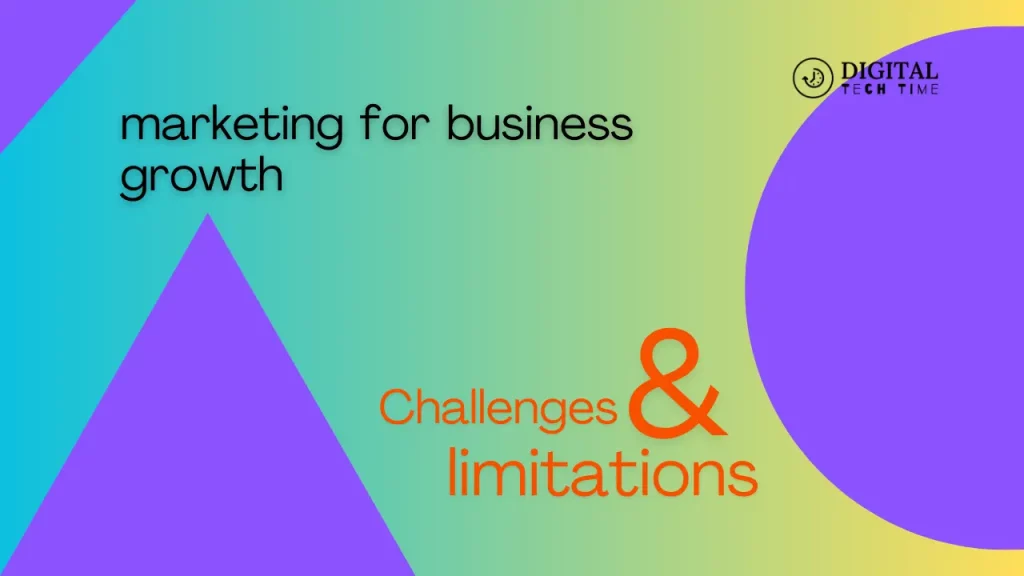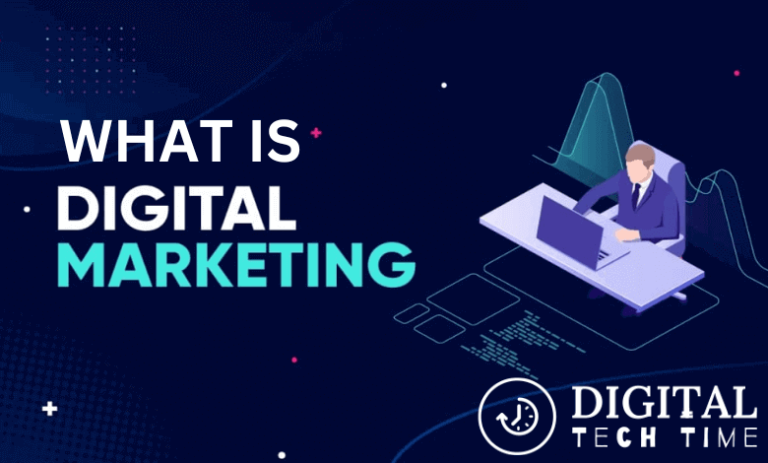Impact of Digital Marketing on Business Growth Scholarly Articles
In the ever-evolving landscape of modern commerce, digital marketing has emerged as a potent force, revolutionizing how businesses connect with their target audiences. As the world becomes increasingly digitized, embracing digital marketing strategies has become an imperative for companies seeking to thrive and expand their reach. This comprehensive article delves into the profound impact of digital marketing on business growth, drawing insights from scholarly articles and real-world case studies.
Table of Contents
The importance of digital marketing for business growth
Digital marketing has become indispensable for businesses striving for growth in today’s competitive market. By leveraging digital channels, companies can effectively reach and engage with their target audiences, build brand awareness, drive website traffic, generate leads, and ultimately boost sales and revenue. The ability to precisely target specific demographics, interests, and behaviours through digital marketing platforms offers businesses a significant advantage over traditional marketing methods.
Overview of Scholarly Articles on the impact of digital marketing on business growth
Numerous scholarly articles have explored the intricate relationship between digital marketing and business growth, providing valuable insights and empirical evidence. These studies have examined various aspects, including the effectiveness of digital marketing strategies, the impact on customer acquisition and retention, the role of data analytics in optimizing campaigns, and the overall return on investment (ROI) for businesses investing in digital marketing initiatives.

Also Read: How to Connect Multiple Monitors to Windows 10
Key findings from scholarly articles on the impact of digital marketing on business growth
The scholarly articles reviewed in this study have yielded several key findings that highlight the transformative power of digital marketing on business growth:
- Increased Brand Awareness and Reach: Digital marketing platforms, such as social media and search engine marketing, have enabled businesses to amplify their brand presence and reach a wider audience globally, leading to increased brand recognition and potential customer acquisition.
- Improved Customer Engagement and Retention: Through personalized and targeted digital marketing campaigns, businesses can foster stronger customer relationships, enhance engagement, and ultimately improve customer retention rates, contributing to sustained growth.
- Measurable Return on Investment (ROI): Unlike traditional marketing methods, digital marketing campaigns offer robust data analytics and tracking capabilities, allowing businesses to measure their ROI accurately and optimize their strategies for maximum impact.
- Cost-Effectiveness: Compared to traditional marketing channels, digital marketing often requires lower upfront costs and offers more cost-effective ways to reach and engage with target audiences, making it an attractive option for businesses of all sizes.
- Agility and Adaptability: The digital landscape is constantly evolving, and digital marketing strategies can be rapidly adapted and optimized based on real-time data and consumer behaviour, enabling businesses to stay ahead of the curve and capitalize on emerging trends.
Case studies showcasing successful business growth through digital marketing
To further illustrate the impact of digital marketing on business growth, let’s explore a few compelling case studies:
- Airbnb: By leveraging social media marketing, influencer collaborations, and content marketing strategies, Airbnb has experienced remarkable growth, becoming a household name in the travel and hospitality industry.
- Warby Parker: This eyewear company has mastered the art of digital marketing, utilizing engaging content, targeted advertising, and seamless e-commerce integration to disrupt the traditional eyewear industry and achieve substantial growth.
- Glossier: Through a strong emphasis on social media marketing, user-generated content, and influencer partnerships, Glossier has built a loyal following and established itself as a leading beauty brand, demonstrating the power of digital marketing in the cosmetics industry.
Common Challenges and limitations of digital marketing for business growth
While digital marketing offers numerous benefits for business growth, it is essential to acknowledge and address the common challenges and limitations:
- Data Privacy and Security Concerns: As digital marketing heavily relies on data collection and analysis, businesses must ensure compliance with data privacy regulations and implement robust security measures to protect customer information.
- Ad Fatigue and Clutter: With the proliferation of digital advertising, consumers may experience ad fatigue, leading to decreased engagement and effectiveness of digital marketing campaigns.
- Rapidly Evolving Landscape: The digital marketing landscape is constantly changing, with new platforms, technologies, and trends emerging regularly. Businesses must stay agile and adaptable to keep up with these changes and optimize their strategies accordingly.
- Skill and Resource Gaps: Effective digital marketing requires specialized skills and resources, which can be challenging for businesses, particularly smaller ones, to acquire and maintain.

Best practices and strategies for leveraging digital marketing for business growth
To maximize the impact of digital marketing on business growth, it is crucial to adopt best practices and implement effective strategies. Here are some key recommendations:
- Develop a Comprehensive Digital Marketing Strategy: Align your digital marketing efforts with your business goals and target audience preferences. Integrate digital channels, such as social media, email marketing, search engine optimization (SEO), and content marketing, for a cohesive and impactful approach.
- Invest in Data Analytics and Optimization: Leverage data analytics tools and techniques to gain insights into customer behaviour, campaign performance, and areas for optimization. Continuously refine and optimize your digital marketing strategies based on data-driven insights.
- Prioritize User Experience and Mobile Optimization: Ensure that your digital marketing campaigns and online presence provide a seamless and engaging user experience across all devices, particularly mobile, as mobile usage grows exponentially.
- Foster Customer Engagement and Loyalty: Implement strategies to engage with your target audience actively, encourage user-generated content, and build a loyal customer base through personalized experiences, valuable content, and exceptional customer service.
- Embrace Influencer Marketing and Partnerships: Collaborate with influential individuals or brands within your industry to tap into their established audiences and leverage their credibility to amplify your brand’s reach and impact.
- Stay Agile and Adaptable: Continuously monitor and adapt to emerging trends, new technologies, and shifts in consumer behaviour. Embrace an agile mindset and be willing to experiment and iterate your digital marketing strategies as needed.
Also Read: How to Monitor Screen Time on Windows 10
Future trends and advancements in digital marketing for business growth
The digital marketing landscape constantly evolves, and businesses must stay ahead of the curve to capitalize on emerging trends and advancements. Here are some notable future trends and advancements that are poised to shape the impact of digital marketing on business growth:
- Artificial Intelligence (AI) and Machine Learning (ML): Integrating AI and ML technologies will enable more personalized and targeted digital marketing campaigns, predictive analytics, and automated optimization processes, increasing efficiency and effectiveness.
- Augmented Reality (AR) and Virtual Reality (VR): As AR and VR technologies become more mainstream, businesses will have opportunities to create immersive and engaging digital experiences for their customers, enhancing brand interactions and driving growth.
- Voice Search and Conversational Marketing: With the rise of voice assistants and smart speakers, businesses will need to optimize their digital marketing strategies for voice search and explore conversational marketing approaches to engage with customers more naturally and intuitively.
- Influencer Marketing 2.0: Influencer marketing will continue to evolve, focusing on micro-influencers, authentic collaborations, and leveraging new platforms and technologies, such as live streaming and virtual influencers.
- Omnichannel Experiences: Businesses must provide seamless and consistent experiences across multiple digital and physical touchpoints, ensuring a cohesive brand experience for customers throughout their journey.
Frequently Asked Questions
Q: What is digital marketing, and why is it essential for business growth?
A: Digital marketing refers to promoting products, services, or brands through various digital channels and platforms, such as websites, social media, search engines, email, and mobile apps. It is essential for business growth because it allows companies to reach and engage with their target audiences more effectively, build brand awareness, generate leads, and drive sales and revenue.
Q: How can businesses measure the impact of digital marketing on their growth?
A: Businesses can measure the impact of digital marketing on their growth by tracking and analyzing various metrics, such as website traffic, lead generation, conversion rates, customer acquisition costs, customer lifetime value, and overall return on investment (ROI). Additionally, they can conduct A/B testing, analyze customer behaviour data, and leverage advanced analytics tools to gain deeper insights into the effectiveness of their digital marketing strategies.
Q: What are the common challenges businesses face in implementing digital marketing strategies?
A: Some common challenges businesses face in implementing digital marketing strategies include data privacy and security concerns, ad fatigue and clutter, the rapidly evolving digital landscape, skill and resource gaps, and continuous optimization and adaptation based on consumer behaviour and emerging trends.
Q: How can businesses stay ahead of the curve in digital marketing?
A: To stay ahead of the curve in digital marketing, businesses should embrace an agile mindset, continuously monitor and adapt to emerging trends and technologies, invest in data analytics and optimization, prioritize user experience and mobile optimization, foster customer engagement and loyalty, and explore innovative strategies such as influencer marketing, augmented reality, and voice search optimization.
Q: What are the best practices for leveraging digital marketing for business growth?
A: Some best practices for leveraging digital marketing for business growth include developing a comprehensive digital marketing strategy aligned with business goals, investing in data analytics and optimization, prioritizing user experience and mobile optimization, fostering customer engagement and loyalty, embracing influencer marketing and partnerships, and staying agile and adaptable to changes in the digital landscape.
Conclusion
Digital marketing strategies significantly impact business growth, enabling increased brand awareness, improved customer engagement, and measurable return on investment. However, businesses must navigate challenges like data privacy concerns and ad fatigue. By adopting best practices, investing in data analytics, prioritizing user experience, and embracing emerging trends, businesses can unlock the transformative power of digital marketing and achieve sustained growth.
Advancements in artificial intelligence, augmented reality, voice search, and influencer marketing 2.0 will further shape the digital marketing landscape, presenting new opportunities for innovation. Partnering with digital marketing experts can unlock the full potential of digital marketing for business growth, leveraging the latest trends and best practices.







